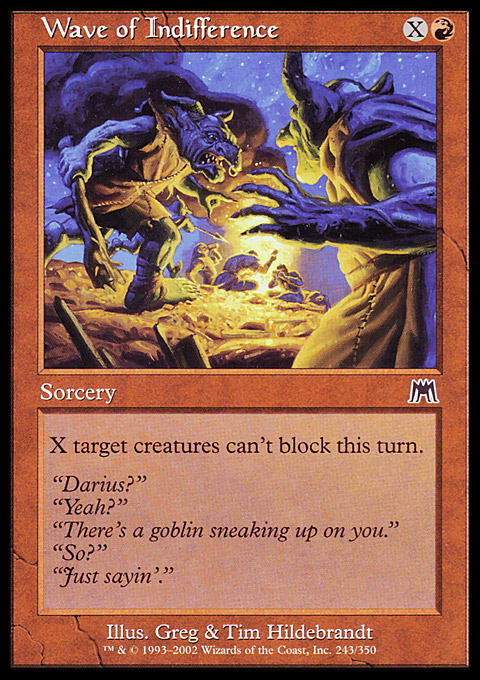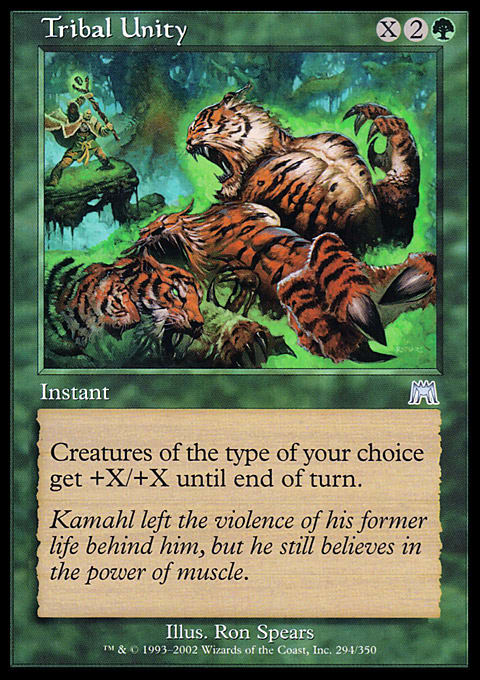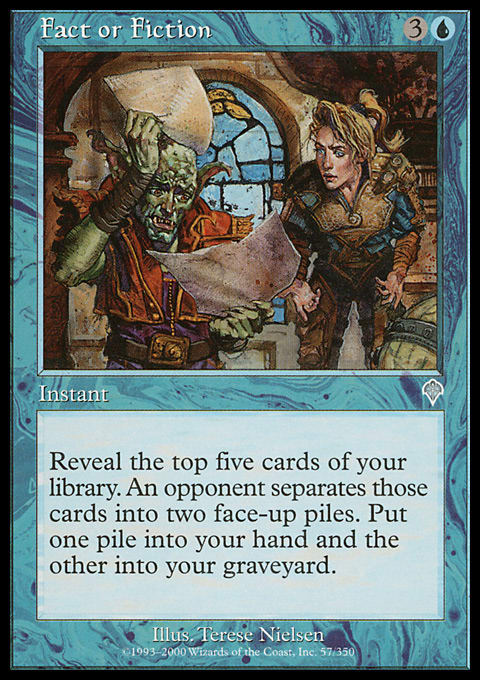It is my honor and privilege to not only be a member of the Magic Pro Tour Hall of Fame, but to be one of the voters for it. Since I was a member of the inaugural class, I have been a voter in each balloting since then. Each year, after I have carefully considered the candidates and their merits, I typically write an article that discusses whom I’ve chosen to vote for and why. While these are usually well received, I get the feeling that some of my regular readers take a week off because they don’t care about the Hall of Fame and don’t know why they should.
There can be many reasons a casual tournament player doesn’t think he or she should care about the pro players and, by extension, the Hall of Fame (I’m guessing most of the people who read my articles regularly at least play in tournaments occasionally, even if it’s just their local Friday Night Magic events, though feel free to give me a shout out in the comments if this isn’t the case).
- “There is no chance I will ever be a member of the Hall of Fame.”
- “Pro players are a bunch of sharks, cheaters, and rules lawyers; I can’t relate to them, and I wouldn’t want to.”
- “Hall of Fame? That seems pretty pretentious for a card game.”
- “I like to trade and collect cards so I can try out cool decks and hang with my friends. The Pro Tour might as well be a mating ritual performed by Amazonian parrots for all I care.”
- “Sure, I think the Pro Tour is cool, and I’m trying to qualify, but the Hall of Fame is just a bunch of has-beens, and it’s all just about politics and popularity anyway.”
. . . So yeah, I can’t think of any reasons why people wouldn’t be riveted by Hall of Fame voting season. While the reasons I’ve listed above may be perfectly valid for some people, there are some pretty compelling reasons that the Pro Tour Hall of Fame could and should matter to you. The most important of which is the fact that you care about being able to keep playing Magic, having people to play Magic with, and continuing to have new Magic sets come out.
One of the things I’ve learned as game designer is that the elements needed to make a trading card game sustainable are very different than any other card game or board game. Perception of the game is crucial. Trading card games are expensive, and becoming good at one takes a serious commitment of time, effort, and money. Nobody wants to make that kind of commitment to a game that he or she will soon be unable to play anymore.
In the case of a typical board game, for example, the equation is much simpler:
- Pick out a game you like.
- Buy it.
- When you and a friend feel like playing, take it out and play it.
It’s not crucial that a board game be a worldwide sensation—as long as you and one other person like to play it together, sure, buy it. With a trading card game, you need to believe in the strength of the product going forward indefinitely. I can absolutely love a TCG, but if nobody wants to play it and there aren’t any tournaments for it, there’s no way I am getting into it, especially if there isn’t a secondary market for the cards. I love Magic, but it’s not the absolute best TCG I’ve ever played. What it does have is the strongest player base, the best organized play, and the best brand strength of any TCG.
What does this have to do with the Hall of Fame? The smart people behind the brand strength of Magic understand how important the perception of the strength of the game is. By creating a feeling of history, permanence, and gravitas to the game, they strengthen it and its future. With things like the Pro Tour, the Hall of Fame, Magic Online, massive prerelease turnouts, and FNMs in every city, no one ever considers the possibility of Magic ever going away. This becomes a self-fulfilling prophecy. If people believe that Magic is an unending, monolithic entity, they are more likely to start playing it and keep playing it. People will come to view it like they do chess, poker, or Monopoly. It’s a game that will be around forever that you can teach your kids, and they can teach it to their kids. Your cards will never completely lose their values, and in many cases, their values will keep going up indefinitely.
The Hall of Fame reminds us of the game’s rich history. It reminds us that the game has been around a long time. What other TCG has been around even close to twenty years? When we’re reminded of the game’s long history, we’re more likely to believe it will stick around indefinitely. The Hall of Fame also helps us view Magic more as an intellectual sport than as just a game. Games may go out of print, but sports are always there, right? Twitter and Facebook are already filled with debate about who should be this year’s inductees; how long before it becomes water-cooler talk like a sports hall of fame? While amateur baseball players may be dreaming more about reaching the major leagues than Cooperstown, it’s all part of the package, part of the dream. Wizards of the Coast views the Pro Tour and the Hall of Fame as aspirational for nonpros, and in many cases, they’re correct.
When I first started playing Magic, there wasn’t a Pro Tour. At a point when I was still somewhat of a casual player dabbling in the game, I read about Zak Dolan winning the first-ever Magic World Championship. In my head, this was like winning an Olympic event; yet, it was something I could actually imagine myself doing. From that moment on, my passion for the game was fully ignited. Zak Dolan may have stopped playing too soon to have a chance at the Hall of Fame, but Wizards is betting on players like Jon Finkel, Kai Budde, and Luis Scott-Vargas to inspire the next generation of Darwin Kastles to fully commit themselves to the game.
So, while you may never join the Hall of Fame or even be trying to join the Pro Tour, these things serve important roles in the perception of and the health of the game. Since you like playing the game, what’s good for the game is good for you.
Making Choices
When I’m selecting whom to put on my Hall of Fame ballot, I mainly consider two things: accomplishments and integrity. I start by making a list of the most accomplished players on the ballot, and then, I remove the ones who have been suspended for cheating at some point. Then, it’s a matter of whittling down the remaining players to the five I believe to be most deserving based on their accomplishments. One of the primary ways to determine who the most accomplished players are is by examining lifetime Pro Points. This reflects a level of sustained excellence that is the kind of thing I think the Hall of Fame is all about. I don’t want to vote for a guy who had a great four-year career and then just moved on with his life. Being a Hall of Famer implies a certain level of commitment to the game. There are twenty players on this year’s ballot with over 200 Pro Points. Given that I can only vote for five of them, it’s incredibly unlikely I would vote for someone with fewer than 200 points.
Another widely recognized benchmark of Pro Tour achievement is making it into the Top 8 of a Pro Tour. There are twenty-two players on the ballot who have made three or more Pro Tour Top 8s. Once again, I can only vote for five, so unlikely that I would vote for someone with fewer than three Top 8s. There are twelve players on the ballot with both 200 or more Pro Points and three or more Pro Tour Top 8s. Two of those players have a median finish at the Pro Tours they’ve attended of greater than one hundredth, which suggests they rarely had any good finishes at the Pro Tour outside of their Top 8s and that they just accumulated many of their Pro Points through Grands Prix and just attending a massive number of Pro Tours. While I have much respect for people able to grind out massive numbers of PTs, it’s not the high level of excellence I associate with the Hall of Fame.
Of the remaining ten players, two of them received suspensions for cheating. This is definitely not the type of player I want to vote for. Fittingly, this leaves me with a Top 8 that I need to somehow trim down to a Top 5:
- Luis Scott Vargas – 351 Pro Points and five Top 8s
- Ben Stark – 293 Pro Points and four Top 8s
- Makihito Mihara – 281 Pro Points and four Top 8s
- Justin Gary – 252 Pro Points and three Top 8s
- Paul Rietzl – 250 Pro Points and three Top 8s
- Eric Froehlich – 236 Pro Points and three Top 8s
- Osyp Lebedowicz – 226 Pro Points and three Top 8s
- William Jensen – 219 Pro Points and four Top 8s
Scott-Vargas (better known as simply LSV) stands out from this list. He is both the only player with more than four Top 8s and the only one with more than 300 Pro Points. He should be a lock for every voter’s ballot. That leaves me with seven people vying for four spots. Eric Froehlich and Osyp Lebedowicz, in addition to only having three Top 8s, are both among the bottom three of my list in Pro Points. Eliminating them leaves me with Stark, Mihara, Gary, Rietzl, and Jensen competing for the last four spots, which means I need to eliminate just one more.
Ben Stark not only has four Top 8s, he has more Pro Points than anyone else on this list, so he earns my second vote—behind LSV. This leaves Mihara, Gary, Rietzl, and Jensen competing for my last three votes. Justin Gary stands out for me here as the next most deserving candidate. He represents the kind of consistent high-level Pro Tour excellence I think the Hall stands for. He’s cashed in more Pro Tours than anyone else on the entire ballot; his whopping twenty Top 32s are way ahead of the entire field, with LSV a distant second with thirteen. His nine Top 16s are second only to LSV’s ten. Not surprisingly, his median finish of fifty-eighth puts him well ahead of Mihara, Rietzl, and Jensen, who all have median finishes of sixty-eighth or higher.
This leaves me with three candidates for two spots. My feeling is that all three of them—Mihara, Rietzl, and Jensen—are deserving of a spot in the Hall based on their stats. Since I can only vote for two of them, I’ve decided to vote for Jensen and Rietzl. This is for primarily personal reasons—if Mihara is inducted, he will have earned his spot. Unfortunately, I don’t really know him, and his median finish of eighty-fourth is well behind those of Jensen and Rietzl. In the case of Paul and Billy, these are both players with whom I’ve played and worked many times over the years. While neither of them lives anywhere near me at present, I still look forward to seeing them at events, and I can always expect a friendly handshake and some pleasant conversation. When I’m doing well, they congratulate me, and when I’m doing poorly, they sympathize. I’m proud to call them my friends, and I would be extremely proud to welcome them into the Hall of Fame, which is no more than they deserve given their impressive accomplishments over the years at this game we all love.



























